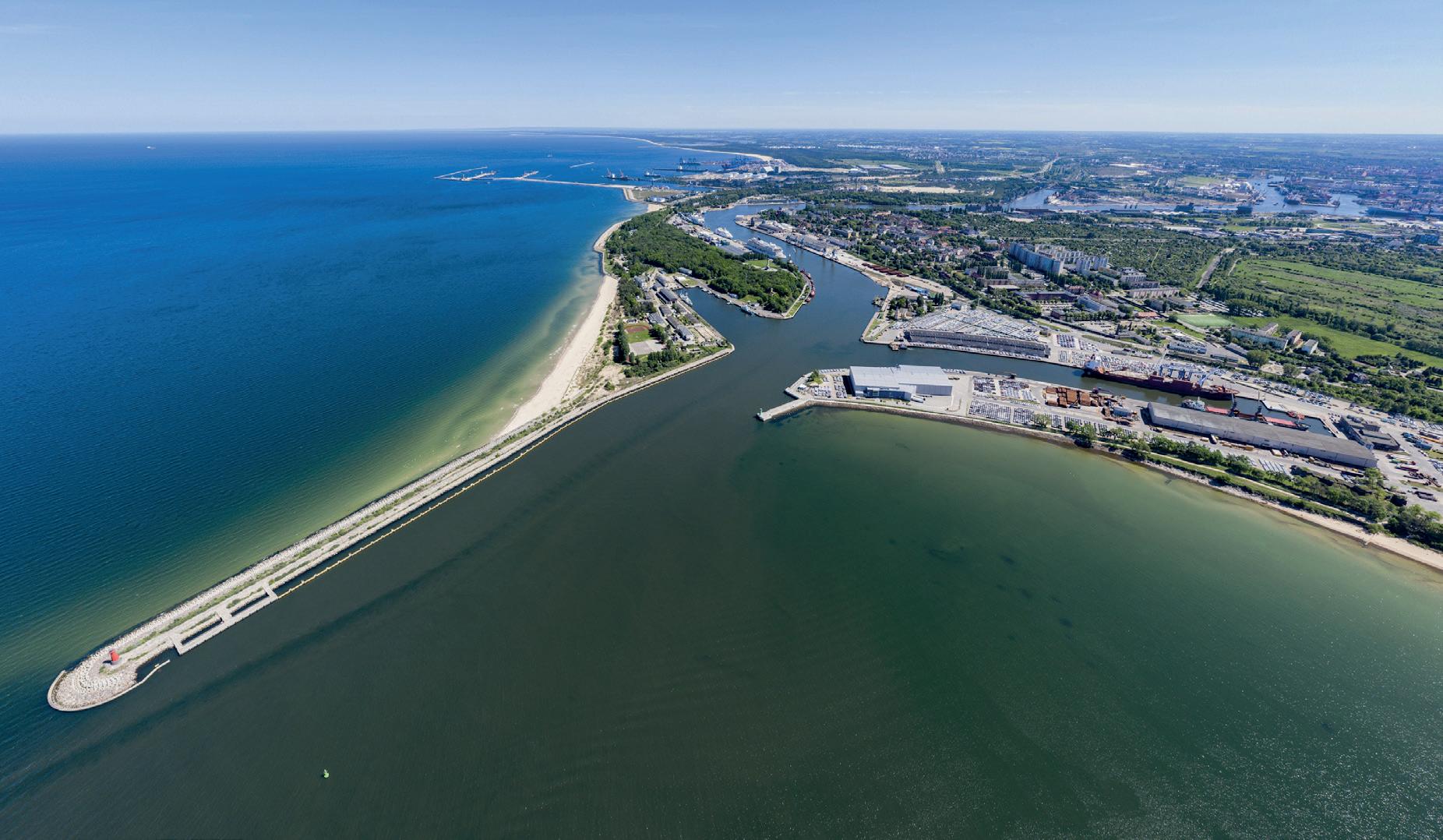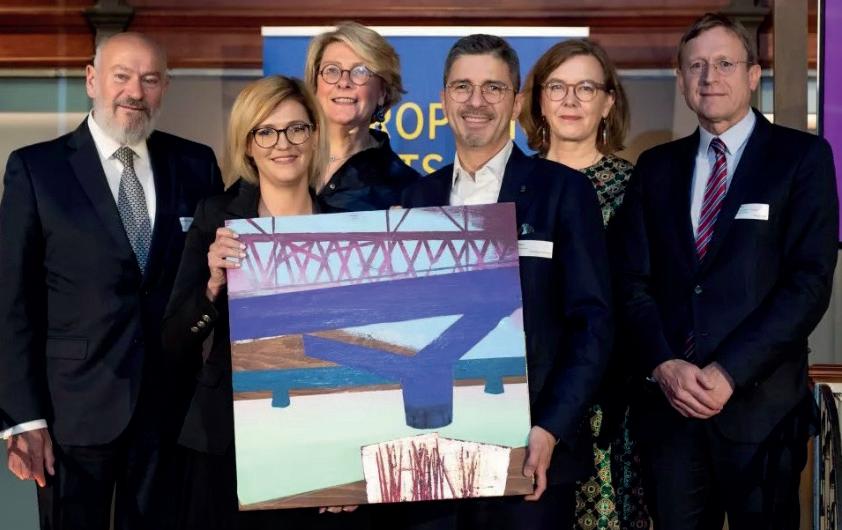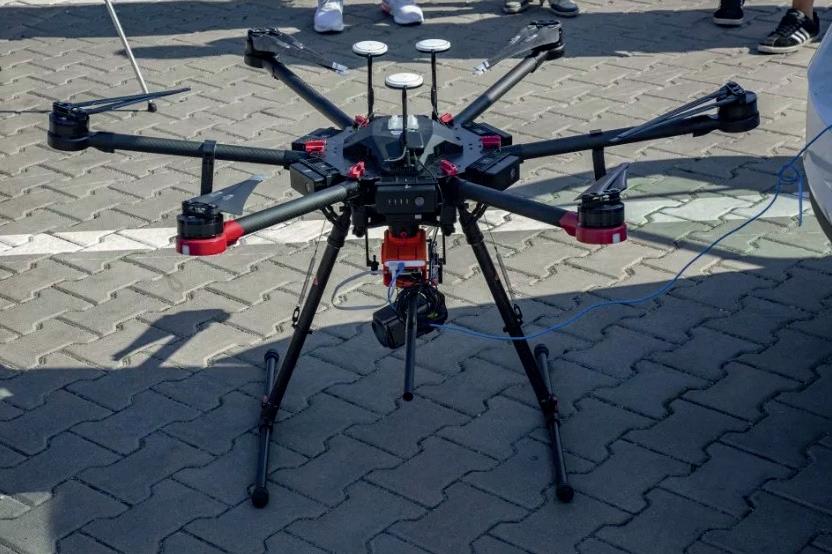
6 minute read
Community
CARE IN THE COMMUNITY
Poland’s Port of Gdańsk is becoming more recognised for its commitment to social inclusion and its care for the community
Photo: Port of Gdańsk
Its recent accolade of winner of the 2021 ESPO award was a special recognition of the port’s work to aid those in need during the pandemic.
“We feel part of this community, so we want to be closer to the residents and support their initiatives. We provide assistance in various areas, such as ecology, sport, health, education”, says Piotr Bura, director of marketing and communications, Port of Gdańsk.
The 13th edition of the competition organised by ESPO recognised ‘The role of ports in the reconstruction of the city and local community’.
In this area, the Port of Gdańsk has much to be proud of. Over the past year, ZMPG SA has implemented several projects to improve the quality of life for residents of districts organically linked to the port, namely at Stogi and Nowy Port.
Grass roots
At grass roots level, the port supports its local football clubs, Gdańsk and Torus Wybrzeże. During the summer holiday period, it organises a summer cinema for residents on the beach in Stogi.
But it also provides fundamental financing for community initiatives too. One such example is the Community Library of the “Friendly Pomerania” Association, operating in the district of Stogi. The social library itself was established by a former terminal employee at the port. It’s not only a place to borrow books or hold cultural events, but has become a meeting point for the inhabitants of the community.
Turning its attention to supporting people through the pandemic, the port has now been involved in pandemicrelated activities for almost a year. It has been helping support the elderly from the districts of Nowy Port and Stogi, with over 8000 meals delivered to them, often providing people with their only hot meal of the day.
It also gave meals to medics and paramedics who found themselves on the front line of the fight against the pandemic.
The port also supported local sports clubs that could not organise competitions and play in front of an audience so as to allow children, teenagers and adults to continue to pursue their sports passions safely.
It has also donated four analysers for SARS-CoV-2 infection diagnosis and personal protective equipment and fridges to Pomeranian hospitals.
“Since the beginning of the pandemic, we have been supporting people on the front line of the fight against the coronavirus,” says Łukasz Greinke, President of the Port of Gdańsk.
“The time of the pandemic has released a huge amount of energy and empathy and a sense of solidarity, so necessary at this time. We are showing that solidarity with others, building good relationships, cooperation and responding to the needs of our neighbours “from across the fence” are values that can make the world a better place.”
ESPO award
Gdańsk was particularly praised for its activities collectively named under the “We Are” slogan which aimed to unify the local community of Gdansk’s districts Nowy Port and Stogi with its old neighbour, the seaport.
Dimitrios Theologitis, chairman of the jury for the ESPO
8 Gdańsk is
becoming more recognised for its commitment to social inclusion
award, says: “The jury was convinced by the “We Are” initiative of the Port of Gdánsk. In difficult times, the port showed cooperation, responsibility and solidarity.”
“Its actions were highly appreciated by the local community and strengthened the ties between the city and what is otherwise a remote industrial environment. Many of the effects will continue to be felt in the future. The award is a symbol that the work done by the ports is also inspired and directed towards people.”
Gdánsk came up against some stiff competition to win the award this year, namely from Hamburg Port Authority (Germany), Port Authority of Valencia (Spain) and Port Authority of Vigo (Spain), which were all shortlisted for the prize.
Green ethos
The overarching aim behind Gdánsk’s “We Are” project was to make the seaport friendlier to its neighbours, Mr Greinke told ESPO.
It was about trying to change the reputation of the port with the community as it is currently associated with powerful infrastructure which is laregly inaccessible to ordinary residents.
The port wants to provide a seaport that is close to the people, their problems and needs. A place which, while fighting for its position on an international level, also notices social needs and the problems occurring just beyond its administrative borders.
“Through these activities and the involvement of port staff, we want to show that the world would be a better place if we learned to work with each other. Seaports are an important element of the urban space, especially those that have been operating for several hundred years. The port connects the city with the sea. It is also the perfect location to put the “think globally, act locally” principle into practice,” Mr Greinke says.
Clean strategy
Away from its work in the community, Gdańsk has some really innovative green projects on the go.
For example, to preserve biodiversity, a consortium is working on a water drone to regularly monitor water quality in the port basins.
An air quality monitoring system based on permanent sensors located at seven points is already in place at the port but it’s hoped that soon water drones will also be able to perform the monitoring.
The monitoring, which uses a YetiAir drone for monitoring PM10 and PM2.5 dust concentrations is being undertaken by way of a collaboration with SeaData from Gdynia, BGEO from Spain and Water Robotics from France.
Together they created the comprehensive CORAL platform, consisting of an interactive database, an environ-mental monitoring system and a port/marina vessel traffic management application.
The partnership between SeaData and ZMPG S.A. began in late 2017 during the Space3ac accelerator programme for start-ups.
The Port of Gdańsk is taking part in the project as a demonstration site, but in the long term SeaData has committed to providing an air quality monitoring system for the port.
“As part of the CORAL project, by the end of 2021 it is planned to create and deliver to the Port of Gdańsk a water drone, built by Water Robotics, which will be used for regular monitoring of water quality and bathymetric measurements along with a system for analysing the collected data,” says Dr Marta Wenta of SeaData.
“The device will measure the properties of the water in the port basins, including the presence of contaminants. The port will also install a buoy equipped with sensors that will continuously measure the most important – in terms of environmental monitoring – water parameters.”
Data from the drone and the buoy is uploaded to an online system where it can then then be visualised and made available for analysis in the form of maps, graphs and reports.
In the first half of 2022, several test flights of a drone equipped with air quality sensors will be performed at the Port of Gdańsk.
From this, an air quality map of the port and detection of potential sources of PM10/PM2.5 will be developed. As with the in-water measurements, data from the flights will also be available as part of the online system.
The CORAL project is implemented under the GALATEA program, Blue Growth Accelerator, operated in Poland by the Baltic Sea and Space Cluster. The project is funded by the European Union through Horizon 2020.

8 The 2021 ESPO
award was a special recognition of the port’s work to aid those in need during the pandemic
8 The port is
working in a partnership to introduce a water drone to regularly monitor water quality in its port basins










